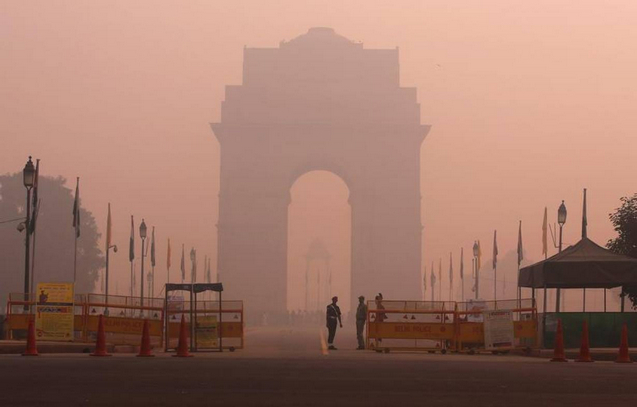Global use of irreplaceable groundwater is exhausting the supply so fast that researchers say it will drive up food prices and hit international trade.
 |
| Vast quantities of groundwater are used in Pakistan to irrigate crops such as rice. Image: Abbrar Cheema via Flickr |
And in the same decade, 2000 to 2010, global use of this non-renewable water resource for irrigation increased by a quarter, according to a new study published in Nature journal.
The research suggests that unless producers and consumers of food make changes, this trend could lead to depleted water reserves, limited availability of food imports, and higher food prices.
Groundwater – from underground supplies, as opposed to water in rivers or lakes – supplies global agriculture with 43% of its crop irrigation needs.
The country exporting the most crops produced using irreplaceable groundwater is Pakistan, with 29% of global non-renewable sources embedded in trade – closely followed by the US (27%), with India (12%) in third place.
Groundwater abstraction
The study’s authors say excessive abstraction of groundwater for irrigation – part of the wider virtual water trade – is leading to rapid depletion of aquifers in key food-producing regions, including north-western India, the North China Plain, central US, and California.
“This depletion of the largest liquid freshwater stock on Earth,” they write, “threatens the sustainability of food production, and water and food security, not only locally, but also globally via international food trade.
“Aquifer depletion can also induce significant environmental degradation, such as land subsidence and seawater intrusion.”
In another example of the way in which climate change works to intensify existing threats, the researchers say the depletion of local water reserves also risks putting large populations at serious danger during emergencies such as droughts, earthquakes or fires, when immediate access to water is needed.
Using UN trade data and estimates of non-renewable groundwater removal, researchers traced the sources of water used to produce agricultural crops. They found that the crops contributing most to the non-renewable groundwater trade are rice (29%), wheat (12%), cotton (11%), maize (4%) and soybeans (3%).
“Under future climate change, droughts may be more frequent in many regions and we may want to keep groundwater reserves for these periods”The study was conducted by an international group of researchers led by Carole Dalin, senior research fellow with the Institute for Sustainable Resources at University College London (UCL), and including scientists at the International Institute for Applied Systems Analysis (IIASA) in Austria, at NASA in the US, and colleagues in Germany.
“People are rightfully food shopping with the environment in mind more than ever before – but it is not just about meat versus vegetables, organic or fair trade,” Dr Dalin says..
“Where and how the products are grown is crucial, and basic foods like rice and bread could have a damaging impact on global water supplies.
“Our research shows that unless both consumers and producers agree to adopt strategies that maximise the long-term sustainability of water use, most of the world’s population risks seeing increased food prices or disrupted food supply.
Potentially dangerous
“Under future climate change, droughts may be more frequent in many regions and we may want to keep groundwater reserves for these periods.”
Thomas Kastner, senior scientist at the Senckenberg Biodiversity and Climate Research Centre, Germany and the Alpen-Adria University, Austria, says: “Our work shows where trade flows are contributing to the unsustainable, and ultimately potentially dangerous, use of water resources. The use of non-renewable water in one place can put food supply in distant regions at risk.”
Yoshihide Wada, a co-author of the report and deputy director of the IIASA Water Programme says: “The products that consumers buy at a supermarket may have very different environmental impacts depending on where they are produced and how they are irrigated.
“In order to help consumers make more sustainable choices about their food, producers should consider adding water labels that make these impacts clear.”
*Alex Kirby is a former BBC journalist and environment correspondent. He now works with universities, charities and international agencies to improve their media skills, and with journalists in the developing world keen to specialise in environmental reporting.
Links




